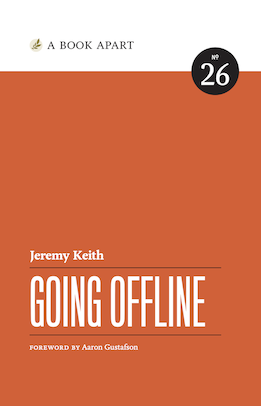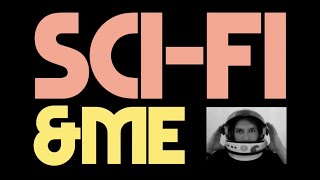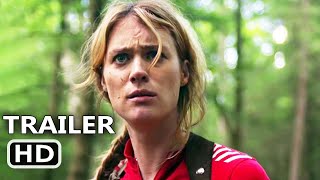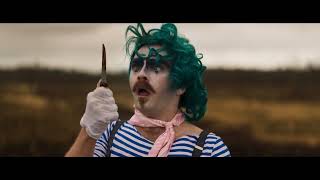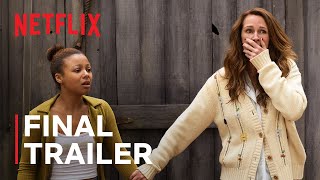Books I read in 2024
I’ve been keeping track of the books I’m reading for about seven years now. I do that here on my own website, as well as on bookshop.org.
It has become something of a tradition for me to post an end-of-year summary of the books I’ve read in the previous twelve months. Maybe I should be posting my thoughts on each book right after I finish it instead. Then again, I quite like the act of thinking about a book again after letting it sit and stew for a while.
I should probably stop including stars with these little reviews. They’re fairly pointless—pretty much everything I read is right down the middle in the “good” category. But to recap, here’s how I allocate my scores:
- One star means a book is meh.
- Two stars means a book is perfectly fine.
- Three stars means a book is a good—consider it recommended.
- Four stars means a book is exceptional.
- Five stars is pretty much unheard of.
No five-star books this year, but also no one-star books.
This year I read about 29 books. A bit of an increase on previous years, but the numbers can be deceptive—not every book is equal in length.
Fiction outnumbered non-fiction by quite a margin. I’m okay with that.
The Wager by David Grann
“A tale of shipwreck, mutiny and murder” is promised on the cover and this book delivers. What’s astonishing is that it’s a true story. If it were fiction it would be dismissed as too far-fetched. It’s well told, and it’s surely only a matter of time before an ambitious film-maker takes on its Rashomon-like narrative.
★★★☆☆
Bridge by Lauren Beukes
I think this might be Lauren’s best book since Zoo City. The many-worlds hypothesis has been mined to depletion in recent years but Bridge still manages to have a fresh take on it. The well-rounded characters ensure that you’re invested in the outcome.
★★★☆☆
The Penelopiad by Margaret Atwood
Part of my ongoing kick of reading retellings of Greek myths, this one focuses on a particularly cruel detail of Odysseus’s return.
★★★☆☆
Elektra by Jennifer Saint
Keeping with the Greek retellings, this was the year that I read most of Jennifer Saint’s books. All good stuff, though I must admit that in my memory it’s all starting to blend together with other books like Costanza Casati’s Clytemnestra.
★★★☆☆
Children Of Memory by Adrian Tchaikovsky
The final book in the trilogy, this doesn’t have the same wham-bam page-turning breathlessness as Children Of Time, but I have to say it’s really stuck with me. Whereas the previous books looked at the possibilities of biological intelligence (in spiders and octopuses), this one focuses inwards.
I don’t want to say anymore because I don’t want to spoil the culmination. I’ll just say that I think that by the end it posits a proposition that I don’t recall any other sci-fi work doing before.
Y’know what? Just because of how this one has lodged in my mind I’m going to give it an extra star.
★★★★☆
Stone Blind by Natalie Haynes
I think this is my favourite Natalie Haynes book so far. It also makes a great companion piece to another book I read later in the year…
★★★☆☆
The Great Hunger by Patrick Kavanagh
I picked up this little volume of poems when I was in Amsterdam—they go down surprisingly well with some strong beer and bitterballen. I was kind of blown away by how funny some of these vignettes were. There’s plenty of hardship too, but that’s the human condition for you.
★★★★☆
Europe In Autumn, Europe At Midnight, Europe In Winter, and Europe At Dawn by Dave Hutchinson
I read the Fractured Europe series throughout the year and thoroughly enjoyed it. I’ll readily admit that I didn’t always follow what was going on but that’s part of the appeal. The world-building is terrific. It’s an alternative version of a Brexity Europe that by the end of the first book starts to go in an unexpected direction. Jonathan Strange meets George Smiley.
★★★☆☆
The Odyssey by Homer translated by Robert Fagles
Seeing as I’m reading all the modern retellings, it’s only fair that I have the source material to hand. This is my coffee table book that I dip into sporadically. I’ve got a copy of the prequel too.
I am not going to assign stars to this.
Faith, Hope and Carnage by Nick Cave and Seán O’Hagan
Fairly navel-gazing stuff, and you get the impression that Nick Cave thinks so too. Just as Neil Young would rather talk about his model trains, Nick Cave would rather discuss his pottery. The music stands on its own, but this is still better than most books about music.
★★☆☆☆
Julia by Sandra Newman
Now this is an audacious move! Retelling 1984 from Julia’s perspective. Not only does it work, it also shines a light on some flaws in Orwell’s original (and I say that as someone who’s read everything Orwell ever wrote). I’m happy to say that the execution of this book matches its ambition.
★★★☆☆
Hamnet by Maggie O’Farrell
So if I’ve been reading alternative perspectives on Homer and Orwell, why not Shakespeare too? This is beautifully evocative and rich in detail. It’s also heartbreaking. A gorgeous work.
★★★★☆
Pandora’s Jar: Women in the Greek Myths by Natalie Haynes
I didn’t enjoy this as much as I enjoyed Natalie Hayne’s novels. It’s all good informative stuff, but it feels a bit like a collection of separate essays rather than a coherent piece.
★★☆☆☆
Best Of British Science Fiction 2023 edited by Donna Scott
I was lucky enough to get a pre-release copy of this from one of the authors. I love a good short story collection and this one is very good indeed.
★★★☆☆
Ithaca and House Of Odysseus by Claire North
Remember how I said that some of the Greek retellings started to blend together? Well, no fear of that with this terrific series. Like Margaret Atwood’s retelling, Penelope is the main character here. Each book is narrated by a different deity, and yet there is little to no supernatural intervention. I’m really looking forward to reading the third and final book in the series.
★★★☆☆
The Shadow Of Perseus by Claire Heywood
This is the one I was hinting at above that makes a great companion piece to Natalie Hayne’s Stone Blind. Two different—but equally sympathetic—takes on Medusa. This one is grittily earthbound—no gods here—and it’s a horrifying examination of toxic masculinity. And don’t expect any natural justice here.
★★★☆☆
Dogs Of War by Adrian Tchaikovsky
Adrian Tchaikovsky has a real knack for getting inside the animal mind. This story is smaller in scale than his Children Of Time series but it succeeds in telling its provocative tale snappily.
★★★☆☆
Reading 84K by Claire North
I described Dave Hutchinson’s Fractured Europe series as Brexity, but this Claire North’s book is one that pushes Tory austerity to its dystopian logical conclusion. It’s all-too believable, if maybe a little over-long. Grim’n’good.
★★★☆☆
Ariadne by Jennifer Saint
The first of Jennifer Saint’s books is also my favourite. There’s a fantasically vivid description of the arrival of Dionysus into the narrative.
★★★☆☆
The Female Man by Joanna Russ
I’ve been meaning to read this one for years, but in the end I didn’t end up finishing it. That’s no slight on the book; I just wasn’t in the right frame of mind for it. I’m actually kind of proud of myself for putting a book down—I’m usually stubbornly completionist, which is stupid because life is too short. I hope to return to this at some future time.
Atalanta by Jennifer Saint
Another vividly-written tale by Jennifer Saint, but maybe suffers from trying to cram in all the varied accounts of Atalanta’s deeds and trials—the character’s motivations are hard to reconcile at different points.
★★★☆☆
Polostan by Neal Stephenson
This was …fine. It’s the first in a series called Bomb Light. Maybe I’ll appreciate it more in its final context. As a standalone work, there’s not quite enough there to carry it (including the cutesiness of making a young Richard Feynman a side character).
★★☆☆☆
Tomorrow, and Tomorrow, and Tomorrow by Gabrielle Zevin
This too was …fine. I know some people really love this, and maybe that raised my expectations, but in the end it was a perfectly good if unremarkable novel.
★★★☆☆
The Fates by Rosie Garland
Pairs nicely with Jennifer Saint’s Atalanta. A decent yarn.
★★★☆☆
Earth Abides by George R. Stewart
I’ve just started this post-apocalyptic classic from 1949. Tune in next year to find out if I end up enjoying it.
Okay, so that was my reading for 2024. Nothing that completely blew me away but nothing that thoroughly disappointed me either. Plenty of good solid books. If I had to pick a favourite it would probably be Maggie Farrell’s Hamnet. And that Patrick Kavanagh collection of poems.
If you fancy going back in time, here are my previous round-ups:
